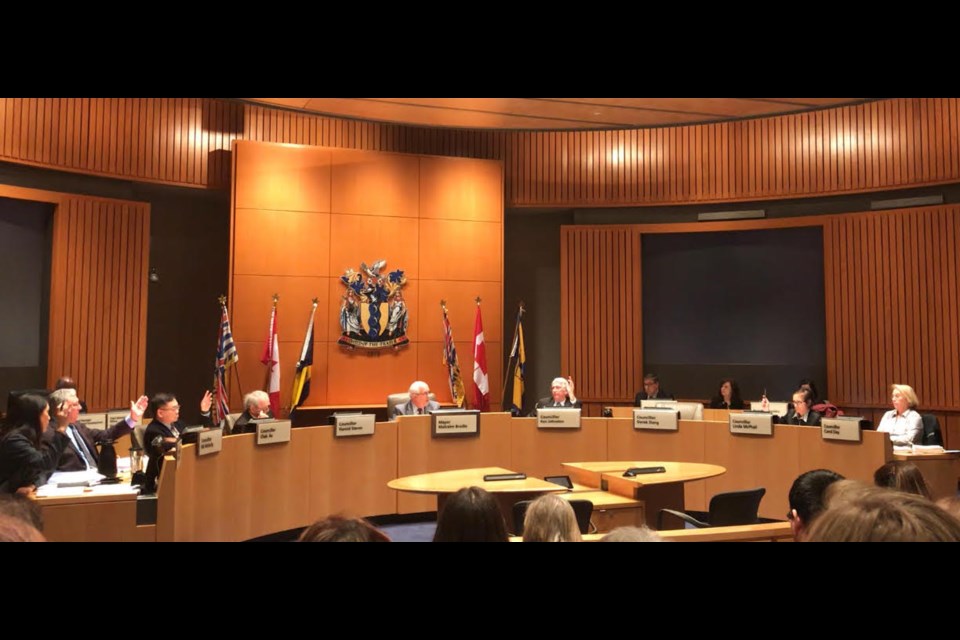It’s the debate that never seems to end in Richmond: what to do with home sizes on the ALR. Monday night’s council meeting further proved just how complicated the topic is, as councillors voted to refer the issue back to staff for additional review.
Council chambers quickly filled to standing room only on Monday, with many attendees donning identification tags that either said “Protect farmers’ rights” or “Save our soil,” declaring which side of the debate they were on. For more than two hours, around 30 delegations signed up to speak. But at the end of the night, council still didn’t feel they had all the information they needed to make a decision.
“At planning committee last week we heard from a couple of farmers asking us to reconsider allowing secondary dwellings on farmland for farm workers,” said Coun. Linda McPhail, who put forward the motion to refer the entire agenda item back to city staff.
Following McPhail’s request, Mayor Malcolm Brodie first asked councillors to vote on whether or not they wanted to send just two issues back to staff, the possible provision of a second residence for farm workers and the city’s ability to impact and limit the size of farm structures.
While this passed, it wasn’t enough for McPhail who wanted the impact of secondary residences considered as a whole home plate issue.
“I think all the pieces of the bylaw are connected,” she said. “They impact each other.”
Brodie then brought the entire agenda item to a vote, asking council to decide if the whole issue should be sent back to staff. Couns. Chak Au, Alexa Loo, Ken Johnstone, Linda McPhail and Bill McNulty all voted for, while Brodie and Couns. Harold Steves and Carol Day voted against.
During the meeting, those in support of reducing home sizes said real estate speculation is a significant concern.
“The number one threat to farmland in Richmond is speculation,” said Kelly Greene, an advocate for reducing home sizes, to council. “Speculation has devastated Richmond’s agricultural potential.”
However, for one ALR resident, Alan Baines, changing the bylaw could have been done too swiftly.
“We don’t have any studies of how farmers would be impacted if we do something that’s not the status quo,” Baines said to council. “I think we’re kind of rushing it here.
“I think we really need to take a step back and start talking…this debate shouldn’t just be about home size, it should be about farming.”
John Roston, who was in favour of reducing home sizes, also spoke to council saying that in some ways, both sides of this debate agree on one thing: the needs of farmers should be met.
“We’ve had a lot of people speaking here as farmers and I think we all want to support them. They’re speaking very passionately about their needs and I think we all feel their needs should be met,” he said.
“What we’re talking about here is regulating non-farmers.”
Following the meeting, Roston was disappointed that council didn’t come to a decision.
“They’ve had over two years to discuss it, they’ve had numerous public hearings,” he said. “I can’t believe that there’s anything anybody has to say that has not already been said. I think it’s largely just them being reluctant to come forward and make a decision one way or the other.”
Ěý



